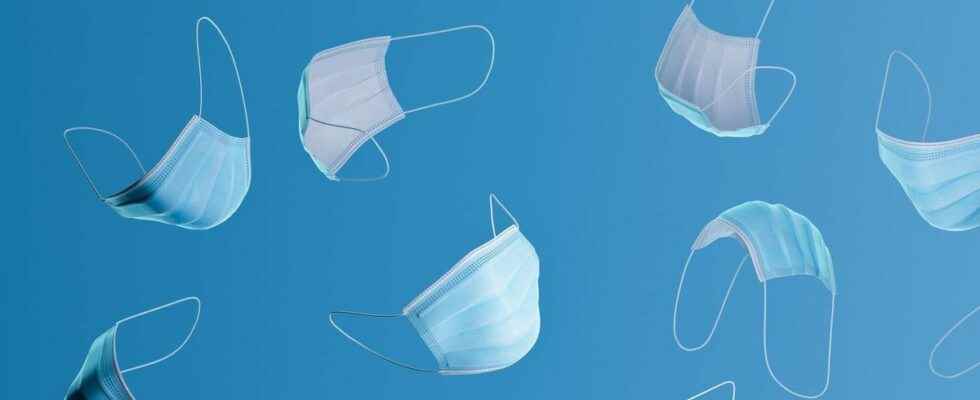Published on
Updated
Reading 2 mins.
in collaboration with
Dr Gérald Kierzek (Medical Director)
Since the beginning of June, the number of Covid-19 contaminations has started to rise again in France. The seventh wave, which we suspected the arrival, is indeed there. the point with Dr Gérald Kierzek, emergency doctor and medical director of Doctissimo.
The beginning of summer marked by an epidemic rise
According to latest report from Public Health Francethe incidence rate increased by 53% the week of June 20 to 26, an acceleration compared to the previous week (+ 29%).
Since then, more than 120,000 cases per day on average have been detected, announced the new Minister of Health François Braun in the Law Commission of the National Assembly, during the opening of a discussion on the bill “to surveillance and health security”. On Tuesday July 5, the number of daily cases reached the threshold of 200,000, noted François Braun. According to Public Health France, more than 206,000 new Covid-19 contaminations have been detected.
The number of hospitalizations is also on the rise, which worries health authorities and doctors a little more. As of July 4, new daily hospital admissions stood at 1,016, up 30% from the previous week.
Admissions to intensive care are also increasing compared to last week (+26%). Deaths from Covid-19 are up 4%.
Dr. Gérald Kierzek, emergency doctor and medical director of Doctissimo, wants to be reassuring in the face of the epidemic’s rise: “Omicron presents 20 to 40 times less risk of developing serious forms than the Alpha and Delta variants”according to a study published in early July.
“We can therefore confirm today the decline in the severity and mortality of Covid-19 over the past two years”explains Dr Gérald Kierzek.
The peak of the seventh wave expected at the end of July
The president of the Scientific Council Jean-François Delfraissy announced that the peak of the seventh wave was expected for the end of July, which means that the number of positive cases will continue to increase between now and then.
For Dr Gérald Kierzek, the peak will take place “whatever action is taken as we are dealing with the natural history of a respiratory virus”.
Consult a GP online
Return prevention measures?
Faced with the rise of the epidemic, many doctors are advocating the return of barrier gestures, in particular the wearing of a mask in public transport. Thus, the SNCF strongly recommends wearing a mask in stations and trains.
“The idea is to avoid closed and crowded places and to ventilate as much as possible”recalls Dr Gérald Kierzek. “For fragile people, wear an FFP2 and do your vaccine booster, ideally with vaccines adapted to circulating strains when they are available”he adds.
Since April 2022, the second vaccine booster (and fourth dose) is available for certain profiles:
- People over 60
- Immunocompromised people of any age
The second booster should be done 3 months after the first booster dose or infection. The only exception: people who are between 60 and 79 years old, who must wait 6 months after their first booster dose or infection with Covid-19.
